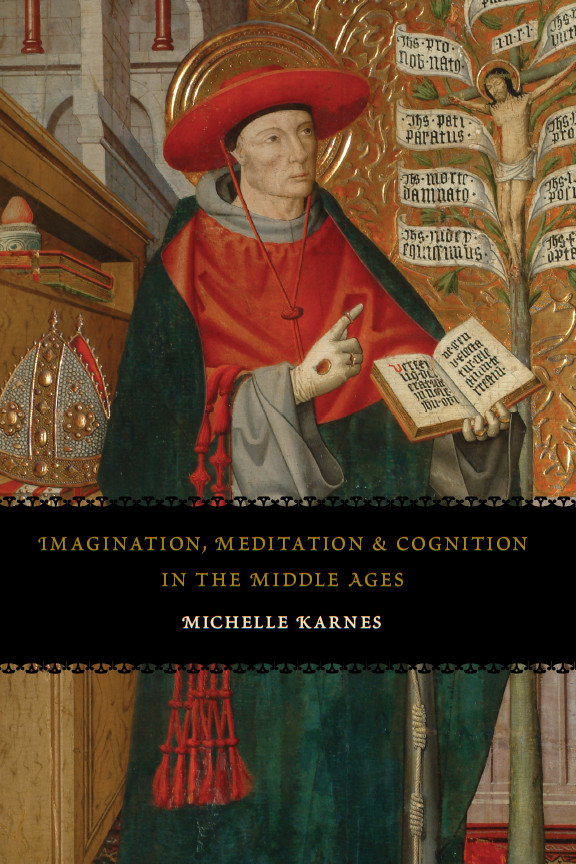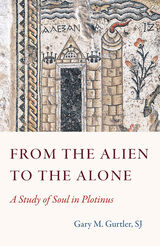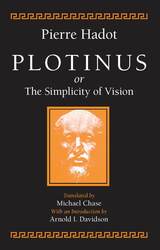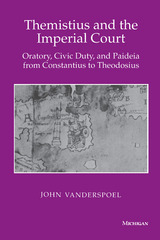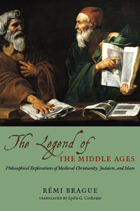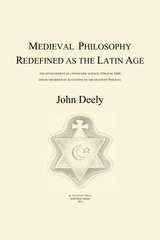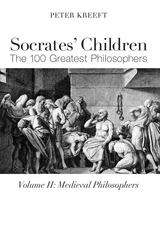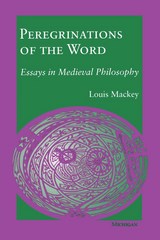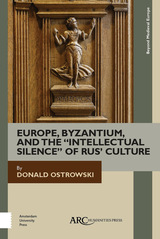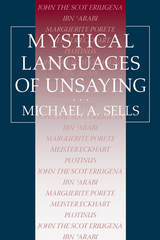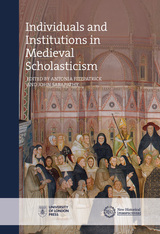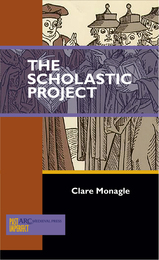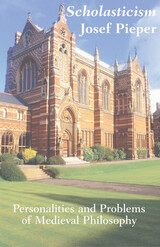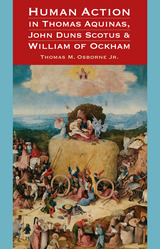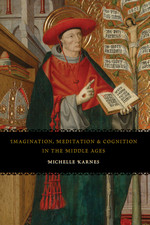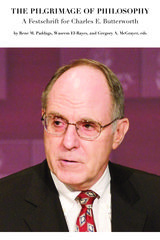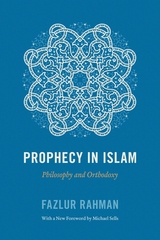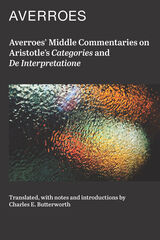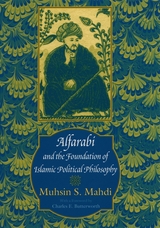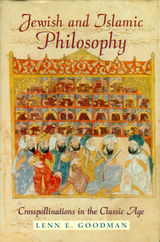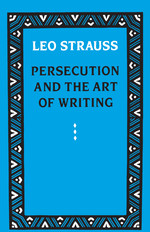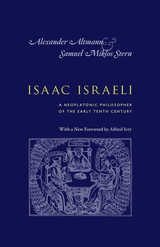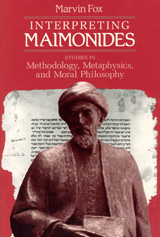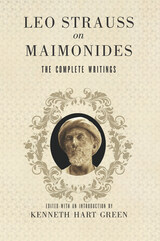“A learned and well-written book about the philosophy of imagination and the late-medieval practice of devotional meditation. Karnes’s argument is powerful and convincing, and makes a valuable addition to a lively field in current medieval studies.”
— Nicholas Watson, Harvard University
“Karnes’s brilliantly counterintuitive argument asserts that the writing out of the role of imagination in late-medieval English meditation does not indicate the weakness of imagination, but rather its potency. This illuminating survey traces its importance in scholastic philosophy and earlier meditative writing to demonstrate that affective theology and the work of reason or mind are not incompatible. This study will be valuable in reconsiderations of the influence of philosophy on other kinds of writing and thinking throughout the Middle Ages.”
— D. Vance Smith, Princeton University
“Michelle Karnes has given us a book of deep learning, lucidity, and intelligence. It reveals the learned origins and the intellectual cogency of meditative forms long thought simplifying and popularizing, and explains why minds of the first rank cultivated them. Never before has medieval devotional literature seemed so smart as Karnes shows it to be. In a single graceful arc, Imagination, Meditation, and Cognition in the Middle Ages sweeps away a conventional account of late-medieval religious writing and supplies what we need to build a better one.”
— Steven Justice, University of California, Berkeley
“[Karnes] attends very carefully to her evidence, and shows us is in detail how guides to meditation shape (and think about shaping) cognitive process, to make us feel like or unlike, close or far away from, what an analyst might call the ‘self-object’ of devotion.”
— Aranye Fradenburg, postmedieval
“Lively and provocative. . . . This is an important contribution to the burgeoning literature on medieval cognition, and will bring these materials helpfully into play as part of the exegetical toolkit of literary scholars.”
— Vincent Gillespie, University of Oxford, Review of English Studies
“Imagination, Meditation, and Cognition in the Middle Ages serves as a salutary reminder that, as a way of systematically structuring the perceived world, scientific thought was not restricted to the groves of academe in the Middle Ages; it pervaded every corner of medieval culture.”
— A. Mark Smith, Isis
“Tightly argued and philosophically sophisticated.”
— Barbara Newman, Northwestern University, Church History
“Skillful, persuasive, and thoroughly enlightening. . . . To borrow a term from Bonaventure, Imagination, Meditation, and Cognition in the Middle Ages is multiformis: at once a lucid primer to medieval Scholastic theories of knowledge, an illuminating study of Bonaventure’s thought and influence, an original essay in the history of imagination, and an indispensable addition to the growing scholarly literature on medieval Passion meditation.”
— Robert Glenn Davis, Fordham University, Modern Philology
“Michelle Karnes has succeeded admirably in a difficult and tripartite task: she has written a meticulous, learned, intelligent, and profoundly useful book of intellectual history; she has shown that the intellectual history she limns is, at its core, a literary history; and she has made manifest how that literary history can—and should—reshape our understandings of three of the most widely distributed Middle English devotional texts, namely, Piers Plowman, Nicholas Love’s Mirror of the Blessed Life of Jesus Christ, and The Prickynge of Love.”
— Eleanor Johnson, Columbia University, Year of Langland Studies
"An excellent, very well-informed and well-argued study, a must-read for anyone who would understand the psychological assumptions underlying late medieval devotional and contemplative literature in particular, but also any literature of the period that deals with the cross-fertilization of imagination and spirituality—which is to say, with virtually all of late medieval literature."
— Michael G. Sargent, Studies in the Age of Chauncer
“Karnes is a fresh and stimulating reader of texts. . . . Her summaries of the Aristotelian tradition are sound and compelling, and her awareness of Bonaventure’s deep Aristotelianism is a welcome reminder to us all of the shared patrimony of Bonaventure and Aquinas.”
— Kevin Hughes, Thomist
“Emphasizing the cognitive significance of both imagination and the meditations that relied on it, Karnes revises a long-standing association of imagination with the Middle Ages. In her account, imagination was not simply an object of suspicion but also a crucial intellectual, spiritual, and literary resource that exercised considerable authority. . . .An impressive work of original scholarship, Imagination, Meditation, and Cognition in the Middle Ages is enhanced for academia with the inclusion of a twenty-two page Bibliography and a five page Index. A particularly thoughtful and thought-provoking study. . .very highly recommended.”
— Helen Dumont, Midwest Book Review
